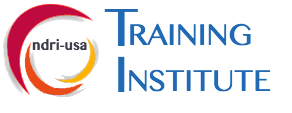Consulting Services
NDRI-USA staff is available to provide training and technical assistance on a fee-for-service basis that can support programs and providers looking to implement a variety of evidence-based and promising practices. All training and technical assistance interventions are designed to enhance individual staff competencies as well as programmatic approaches to care with the common goal of fostering change that will vastly improve the behavioral and physical health of consumers.
Terry Cole, LMSW, CASAC
Colorado Judicial Branch, Division of Court Services
Training Consultation
NDRI-USA staff are available for free consultation regarding all training and technical assistance needs. During this initial phone consultation, staff will provide you with individualized attention in an attempt to identify your most pressing needs and the resources we have available. If your training needs can be addressed via one of our currently funded training projects (provide link), staff will direct you to the source. If, on the other hand, a customized response is required to meet your training needs, staff will work closely with you to establish a viable scope of work that is fiscally feasible.
Curriculum Development
NDRI-USA staff has nearly 30 years experience developing course curriculum in a variety of topic areas specific to health care delivery, including both behavioral (substance abuse and mental illness) and physical health and wellness. These products may include the development of PowerPoint curriculum, trainer manuals (with narrative trainer notes), participant manuals (with narrative content notes), and a variety of handouts and interactive exercises that support delivery. In order to accomplish this, we rely upon our curriculum development process that involves an initial needs assessment, detailed literature review, expert input and feedback, pilot testing, and evaluation.
Curriculum Revision
Educational curricula require frequent updates to ensure that the content reflects the most current state of the science and new developments in the field. Comprehensive curriculum updates require detailed reviews of the scientific literature, a keen understanding of policy developments, and awareness of other products in the field that can inform the topic and serve as additional resources in support of the training. When revising curriculum, we rely on the same process that we employ when developing new curriculum, which involves an initial needs assessment to determine priorities for revision, a detailed literature review, expert input and feedback, pilot testing, and evaluation.
Training-of-Trainers
Given the demand for training and the limited availability of qualified trainers and resources for training, we recognize the need to expand the pool of trainers available to providers. Training-of-Trainers (ToT) can build organizational, local, regional, and national capacity to provide training in a variety of subject areas. ToTs are designed for individuals with a strong experiential background in the given topic area who will be able to disseminate this information through the delivery of subsequent training. ToTs can be designed for any of our existing course curriculum to meet your specific needs.
Face-to-Face Workshops
Although the field is moving toward distance learning in order to increase provider access to training and technical assistance, face-to-face workshops are ideal for more comprehensive training deliveries that require hands-on instruction. This educational format has significant advantages as it provides the facilitator with the latitude to address the topic in depth in an environment more conducive to interactivity. We have delivered face-to-face workshops ranging from 3 hours to 10 days in duration, but could customize your delivery to suit your needs. If your organization would like to arrange face-to-face training, we likely have course curriculum on your topic ready for delivery.
Webinars
This distance education vehicle allows learners to participate in training without having to leave the office, thereby vastly improving access to training and technical assistance for providers with limited time and resources. Webinars typically range from 45 minutes up to 2 hours for individual deliveries, however, longer courses can be delivered through a multiple-part webinar series to ease the burden on providers. Webinars can also be archived on our website to allow for “on-demand” access, which could be advantageous in the event of staff turnover, for those who desire a refresher, or for others in the field who may want access to additional training resources. Any of our existing course content can be readily adapted for webinar delivery to meet the specific training needs of your staff.
Online (e-learning) Courses
Given the reality that many providers do not have the time or the resources to participate in an instructor-led training program, our self-paced online courses offer a high degree of flexibility in that they provide “on demand” access to critical training content. Over the past ten years, we have developed more than 40 self-directed, interactive, tailored learning modules (approximately 20 minutes each in length) in various course areas. These learning modules have been adapted from existing face-to-face courses, with a research base, and translated for the online learning environment through an application of adult learning principles. All e-learning courses contain elements of color graphics, voice and text, video, as well as learning games, which have been particularly successful in both engaging participants and in creatively evaluating learning.
Speaking Engagements & Presentations
NDRI-USA staff possesses expertise in a vast array of topic areas relevant to healthcare delivery and are available to contribute their expertise to conference workshops, seminars, keynotes, and other speaking engagements.
Technical Assistance
Although training is essential for providing professionals with critical knowledge on evidence-based and promising practices, implementation often requires hands-on technical assistance to ensure that these practices are integrated with fidelity. Our staff has ample experience working with providers in the context of service settings to develop implementation plans designed to serve as a roadmap for integration, and to address critical challenges that threaten successful implementation.
-

Trauma Informed Care
Trauma Informed Care is an organizational structure and treatment framework that helps providers to understand and treat clients who have experienced trauma(s) by emphasizing physical, psychological and emotional safety. Becoming “trauma informed” is to recognize that people often have many different types of trauma in their lives, and to understand its impact on mental health, substance use, and physical health issues. Understanding the impact of trauma can help to prevent the re-traumatization of trauma survivors that is often inflicted inadvertently by well-meaning caregivers and community service providers. -

Cultural Competence
Developing cultural competence means an ability to understand, communicate with, and effectively interact with people across all cultures. It encompasses an awareness of one’s own cultural views, attitude towards cultural differences, knowledge of different cultural practices and views, and cross-cultural skills. The concept of cultural competency has a positive effect on patient care delivery by enabling providers to deliver services that are respectful of and responsive to the health beliefs, practices, cultural and linguistic needs of diverse patients. When developed and implemented as a framework, cultural competence enables systems, agencies, and providers to reduce health disparities and improve access to high-quality health care for ethnic, racial, religious, geographic and social groups. -

Medication Assisted Treatment (MAT)
Opiate abuse, dependence, and overdose continue to escalate in the US, with prescription opioid abuse identified as one of the nation’s most significant public health concerns. Medication Assisted Treatment (MAT) has long demonstrated economic viability and benefits in facilitating recovery. Yet, despite well-documented evidence of its effectiveness and the widespread availability of pharmacotherapies for the treatment of Substance Use Disorders (SUDs), the adoption of MAT remains limited in SUD treatment and primary care settings nationwide. In order to facilitate the adoption and implementation of MAT in these settings, it is critical to provide staff with the education necessary to support this practice, particularly for physicians who are responsible for prescribing and monitoring this service, as well as non-physician medical and behavioral health staff who play an important role in supporting both the prescribing physician and the patient receiving such services. -

Ethics
Health care professionals are faced with ethical dilemmas on a regular basis, which are often complicated by problems arising out of substance use and mental illness. Professional ethical standards serve as legal guidelines for professional behavior that are developed to protect the profession, the professional and the client. These standards are distinct from personal values, morals, or religious convictions. Though many ethical issues are complex enough to require individual evaluation, an established code of ethics offers a basis for decision making that can inform how to deal with complicated issues such as informed consent, confidentiality, duty to report, security of and access to client records, and therapeutic boundaries. -

Viral Hepatitis
An estimated 5 million persons are living with Viral Hepatitis in the United States. Although Hepatitis is largely preventable it is the leading cause of liver cancer and the most common reason for liver transplantation. Furthermore, three-quarters of infected Americans are unaware of their infection status, not accessing care and treatment, and are potentially putting others at risk of infection. Training can help providers take critical steps necessary to improve viral hepatitis prevention efforts as well as make care and treatment available to infected individuals. A better understanding of viral hepatitis, including disease progression, impact of infection, how to counsel and promote screening and testing, and emphasis on linkage to care of infected individuals, will promote healthier patient outcomes and stem the tide of this emerging epidemic nationwide. -

HIV
Due to advances of medical treatment for HIV, what was once a fatal and disabling disease is now a chronic manageable condition. Despite significant reductions during the past 30 years in the transmission rate and incidence of new HIV infections, there is still more work to be done to prevent the spread of HIV in the U.S. Approximately 56,000 new HIV infections occur annually while certain populations continue to be disproportionately affected by HIV—gay, bisexual, and other men who have sex with men (MSM), African Americans, Hispanics/Latinos, as well as injection drug users. Training can focus on issues critical to preventing the spread of HIV such as HIV testing so that potentially infected individuals are aware of their status, behavioral interventions that have proven effective in reducing the risk of acquiring or transmitting HIV, and linkage to treatment and care, which enables individuals with HIV to live longer and healthier lives while also reducing the risk of transmitting HIV.
-

Opioid Overdose Prevention
Efforts are being made across the country on multiple fronts to educate communities about how to prevent opioid overdose and to prepare a wide range of professionals and citizens to respond in the event of a suspected opioid overdose. Although significant progress has been made, there is more work to be done in order to adequately educate a wide range of health, social service, first responders and citizens about Opioid Overdose Prevention. At the forefront of these efforts, the drug Naloxone (also marketed as Narcan, Nalone, Evzio, and Narcanti) is now a critical component of emergency overdose response protocols because it has been shown to reduce rates of fatal overdose. However, the effective use of Naloxone requires standard education that promotes a better understanding of the drug and how it’s used to respond to an overdose, including its modes of administration. Training has the potential to limit many unnecessary deaths as providers, first responders, and laypersons are more effectively prepared to respond to opioid overdose emergencies. -

Telehealth Technologies
Access to behavioral health and medical services is a significant barrier for many, especially those individuals residing in rural and remote areas. The use of telehealth technologies to deliver such services has the potential to decrease barriers to accessing treatment. Training that emphasizes how these technologies can enhance the quality of treatment services and increase access is essential to help program administrators make informed decisions about the implementation of telehealth technologies. Introductory workshops cover the various ways that telehealth technology has been and can be employed to deliver services, privacy and security considerations, treatment outcome rates, and reimbursement structures. -

Motivational Interviewing (MI)
Clients who need to make changes in their lives approach counseling at different levels of readiness to change their behavior. In fact, ambivalence about change is quite common and can serve as a critical barrier to treatment engagement. Motivational Interviewing (MI) is an evidence-based therapeutic model that addresses ambivalence to change by evoking a client’s intrinsic motivation to change unhealthy behaviors. Although many clinicians feel that they routinely utilize MI when counseling clients, MI is a communication method that requires a complex set of skills cultivated via training, supervised practice and feedback. When implemented properly, MI reduces ambivalence, improves engagement, and in turn has demonstrated a positive effect on treatment outcomes for a variety of problem areas. -

Recovery
The term “recovery” has been used in connection with overcoming addition to alcohol and other drugs as well as healing from mental illness. Recovery is best understood as a process of change through which individuals improve their health and wellness, live a self-directed life, and strive to reach their full potential. Leaders in the behavioral health field have also identified recovery as a primary goal for behavioral health care, stressing the importance of transforming traditional mental health and addiction treatment service models towards a recovery orientation. In order to accomplish this, providers require a better understanding of the core competencies of recovery oriented systems of care as well as support toward implementing programmatic and operational factors involved in facilitating recovery. -

Clinical Supervision
Effectively delivered clinical supervision has long been viewed as essential for improving client care, developing the professionalism of clinical personnel, and maintaining ethical standards in the field. In many ways, clinical supervision has become the cornerstone of quality improvement and assurance. Thus, supervisors must obtain the knowledge and skills that are necessary to promote the professional development of staff and assure the overall quality of care. This may include a review of the essential elements of supervisory practice, motivational interviewing as an effective strategy for observation-based clinical supervision, and the use of technology to maximize opportunities for supervision. -

Integrated Behavioral Health and Primary Care Services
The Affordable Care Act will provide one of the largest expansions of mental health and substance use disorder coverage. Beginning in 2014 under the law, all new small group and individual market plans will be required to cover mental health and substance use disorder services as essential benefits, and will be required to cover them at parity with medical and surgical benefits. As a result primary care settings have become a gateway for individuals with behavioral health needs. In order to address these needs primary care providers are integrating behavioral health services into their settings using care managers, behavioral health consultants, behavioralists, or other consultation models. However, professionals on the front lines need training and technical assistance that can communicate best practices that will effectively support integrated behavioral health and primary care services.
Submit a Training Request
I first contacted NDRI-USA in July 2013 and by September 2013 was able to arrange for 2 trainers to train the new DSM-5 and Motivational Interviewing, which our providers were clamoring for. This was the beginning of a beautiful partnership. Since September 2013, NDRI-USA has provided over 63 CEU hours of training specifically requested by our community of providers. The trainings and trainers are top notch; everyone here is so appreciative of NDRI-USA’s expertise, which is something I hear everywhere I go. Since NDRI-USA’s trainers have been coming to Binghamton, they have gotten to know our providers well and this relationship has been significant in building more community awareness and collaboration among agencies. We also have a strong peer community here, and several consumers/peers have been welcomed to attend the trainings. Everyone and everything about NDRI-USA is professional, knowledgeable, responsive, down to earth and personable. We couldn’t ask for a better relationship or better trainings than what we have experienced from NDRI-USA. Thank you!!
Dual Recovery Coordinator
Broome County, Binghamton, NY
NDRI-USA (Ms. Diana Padilla) delivered a two day cultural proficiency training to four Colorado problem solving court teams as well as a Training-of-Trainers (ToT) on the third day. Ms. Padilla and the NDRI-USA cultural proficiency curriculum provided an invaluable blueprint for our practitioners that stimulated thoughtful discussions and offered tangible ways to make changes and improvements to their programs. The exercises were thought provoking and relevant. Ms. Padilla skillfully took what could be difficult subject matter and created a safe learning environment that encouraged participants to be curious, share and grow.

